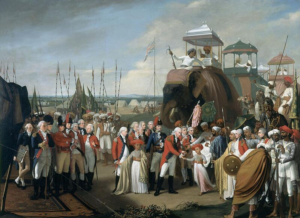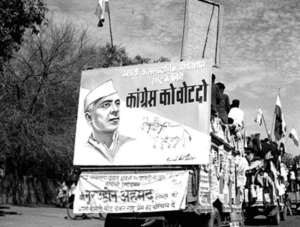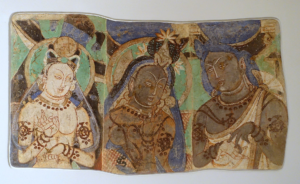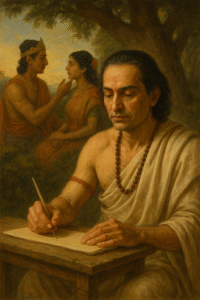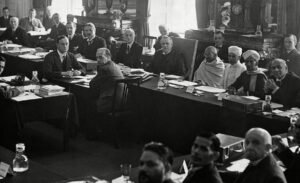Netaji Subhas Chandra Bose: The Unwavering Patriot and Revolutionary Leader
Netaji Subhas Chandra Bose is a towering figure in the annals of India’s freedom struggle. Renowned for his radical strategies, Bose’s life epitomizes courage, vision, and an unrelenting determination to achieve liberation by any means necessary. While his methods diverged from the mainstream non-violent resistance, his legacy as a revolutionary patriot remains undiminished.

Early Life and Education
Born on 23rd January 1897 in Cuttack, Odisha, Subhas Chandra Bose was raised in a prominent Bengali family. His father, Janakinath Bose, was a respected lawyer, and his mother, Prabhavati Devi, instilled in him a sense of spirituality and discipline. A brilliant student, Bose secured second rank in the prestigious Indian Civil Services (ICS) Examination in 1920. However, his heart lay elsewhere. He renounced the ICS, famously stating, “The best way to end a government is to withdraw from it,” showcasing his willingness to sacrifice personal gains for the greater cause of India’s independence.
Political Career and Divergence from Gandhi
Bose’s early political career was deeply influenced by Deshbandhu Chittaranjan Das, who mentored him in the Indian National Congress (INC). While initially aligned with the party’s leadership, Bose’s ideological differences with Mahatma Gandhi soon became evident. Gandhi’s philosophy of non-violence clashed with Bose’s belief in armed resistance and direct confrontation with British imperialism.
Bose’s leadership skills came to the fore when he was elected Congress President in 1938 and 1939. However, his growing disagreements with the party’s conservative factions led to his resignation and the formation of the Forward Bloc, a party dedicated to mobilizing left-wing forces.
Formation of the INA and Key Battles
Subhas Chandra Bose’s most impactful contribution to India’s freedom struggle came through the revival of the Indian National Army (INA). In 1943, after traveling to Southeast Asia, Bose took command of the INA, transforming it into a disciplined and motivated force dedicated to expelling the British from Indian soil.

The INA fought several significant battles under Bose’s leadership:
- Battle of Imphal (1944): The INA, alongside Japanese forces, launched an ambitious offensive to invade India through Manipur. While the initial campaign made progress, logistical challenges, monsoon rains, and fierce British resistance turned the tide against them.
- Battle of Kohima (1944): Dubbed the “Stalingrad of the East,” this battle was critical for the INA’s campaign in Northeast India. Despite their bravery, the INA and Japanese forces were eventually repelled, marking the beginning of their retreat.
- The Arakan Campaign: The INA engaged in guerrilla warfare along the Arakan front in Burma (present-day Myanmar), showcasing its resilience even under adverse conditions.
Although the INA’s campaigns ultimately failed due to lack of resources, supply shortages, and the collapse of the Axis Powers in World War II, their sacrifices and commitment ignited a sense of nationalism among Indians, inspiring renewed calls for independence.
Alliance with the Axis Powers: A Controversial Gamble
Netaji’s alliance with the Axis Powers—primarily Nazi Germany and Imperial Japan—has sparked debate for decades. Bose’s decision was rooted in pragmatism rather than ideology. He believed that Britain’s enemies could be valuable allies in weakening its grip over India.
In Germany, Bose established the Free India Centre and collaborated with Nazi leaders to form the Legion Freies Indien (Free India Legion), consisting of Indian POWs from North Africa. However, his interactions with Adolf Hitler were marked by caution; Bose criticized Hitler’s racial ideology, particularly his remarks on India in Mein Kampf.
Later, Bose shifted his base to Japan, where he found more robust support for his cause. The Japanese provided the INA with weapons, training, and logistical assistance. While his association with fascist regimes remains a contentious issue, Bose’s primary motivation was clear: to leverage any opportunity to achieve India’s independence.
Bose’s Philosophy and Modern Relevance
Subhas Chandra Bose envisioned an independent India built on the pillars of social justice, economic equality, and national unity. He advocated for a socialist model of governance, emphasizing state-led industrialization, land reforms, and equal opportunities for all citizens. His belief in secularism and inclusion made him a leader ahead of his time, as he championed harmony among different religions and communities.
Bose’s famous slogan, “Jai Hind,” continues to resonate as a symbol of unity and patriotism in modern India. His vision of women’s empowerment, reflected in the formation of the Rani of Jhansi Regiment, aligns with contemporary efforts to promote gender equality.
In today’s world, Bose’s emphasis on self-reliance and resilience finds echoes in India’s push for economic independence and technological advancement. His legacy also serves as a reminder of the sacrifices required to achieve freedom and justice.
Legacy and Unresolved Mysteries
Subhas Chandra Bose’s disappearance in August 1945, following a reported plane crash in Taiwan, remains one of history’s most enduring enigmas. While official accounts claim he succumbed to injuries, many believe he survived, living incognito for years. Investigations into his disappearance have fueled speculation, but the truth remains elusive.
Regardless of his mysterious fate, Bose’s contributions to India’s independence movement remain unparalleled. His life exemplifies the relentless pursuit of freedom, inspiring generations to believe in the power of determination and unity.
Timeline of Netaji Subhas Chandra Bose’s Life
Early Years (1897–1920)
- 23rd January 1897: Born in Cuttack, Odisha, to Janakinath Bose and Prabhavati Devi.
- 1913: Completed schooling at Ravenshaw Collegiate School in Cuttack.
- 1918: Graduated from Presidency College, Kolkata, with a degree in Philosophy.
- 1920: Secured second rank in the Indian Civil Services (ICS) Examination in England but refused to serve under the British government.
Entry into Politics (1921–1933)
- 1921: Returned to India and joined the Indian National Congress (INC); mentored by Chittaranjan Das, whom he regarded as a political guru.
- 1924: Appointed Chief Executive Officer of the Calcutta Municipal Corporation.
- 1925: Arrested for nationalist activities and imprisoned in Mandalay, Burma.
Leadership and Ideological Shift (1934–1941)
- 1934: Advocated for complete independence from British rule, clashing with the Congress’s moderate stance.
- 1938: Elected President of the Indian National Congress at the Haripura session.
- 1939: Re-elected as Congress President at the Tripuri session but resigned due to ideological differences with Mahatma Gandhi and senior leaders.
- 1939: Formed the Forward Bloc, aiming to unite radical elements of the Congress.
- 1941: Placed under house arrest by the British; escaped to Germany via Afghanistan and the Soviet Union.
World War II and Formation of the INA (1942–1945)
- 1942: Met Adolf Hitler in Berlin; established the Free India Centre and Azad Hind Radio to propagate the cause of Indian independence.
- 1943: Relocated to Japan and took charge of the Indian National Army (INA), formed by Indian soldiers captured by the Japanese.
- 21st October 1943: Proclaimed the establishment of the Provisional Government of Free India (Azad Hind Sarkar).
- 1944: INA launched its campaign against British forces in the battles of Imphal and Kohima, marking the high point of Bose’s military efforts.
Disappearance and Legacy (1945–Present)
Present: Netaji’s life and ideals continue to inspire India’s political, military, and cultural ethos.
18th August 1945: Reported death in a plane crash in Taiwan; circumstances remain disputed.
1946: INA trials in Delhi gained widespread public support and intensified calls for independence.
1947: India achieved independence; Bose’s role was widely acknowledged as a catalyst in weakening British resolve to rule.
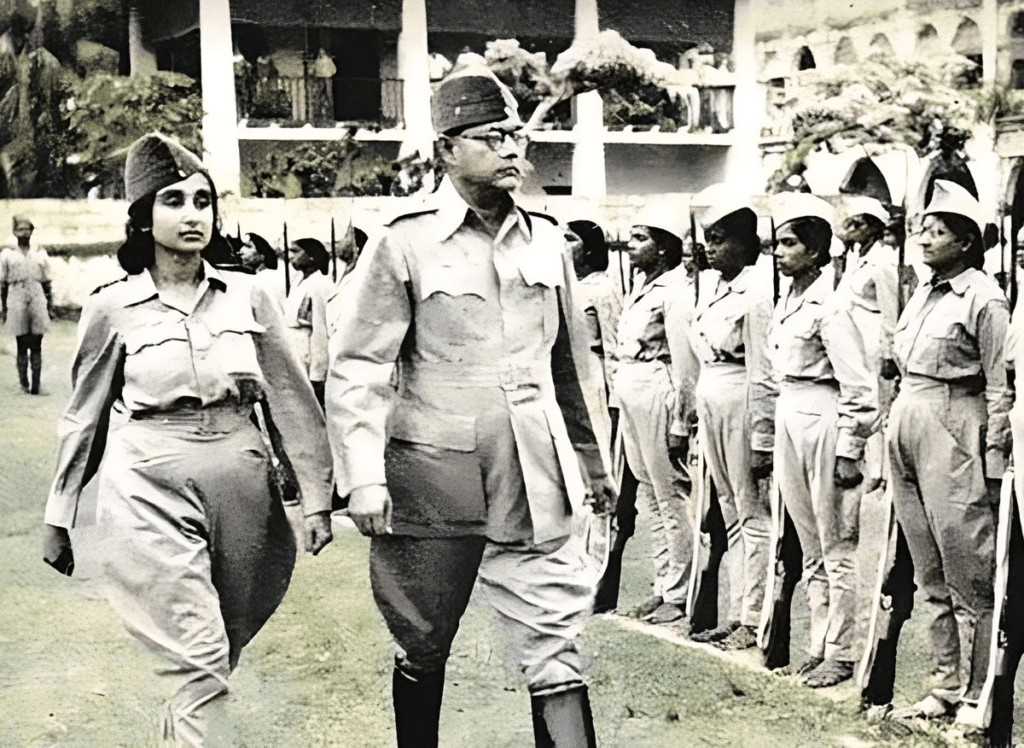
Netaji Subhas Chandra Bose was not just a freedom fighter but a visionary who dared to dream of an independent, progressive, and inclusive India. While his methods and alliances may remain subjects of debate, his unwavering commitment to the cause of liberation is universally admired. Bose’s ideals of self-reliance, resilience, and national pride continue to inspire a nation that owes much of its freedom to his sacrifices.

